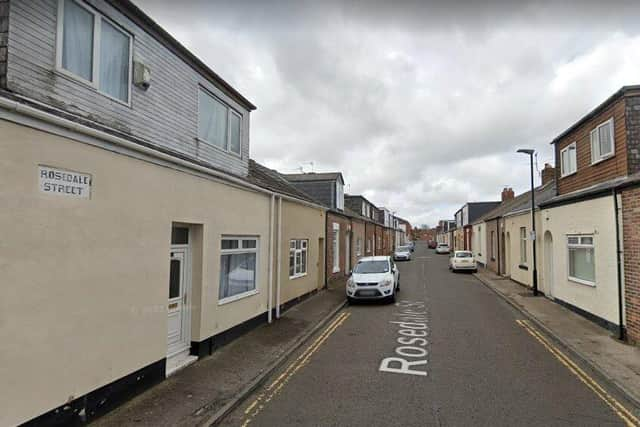Controversial Sunderland HMO approved after developer appeals to planning inspector
and live on Freeview channel 276
Sunderland City Council’s planning department refused an application for a development at 9 Rosedale Street in the Millfield ward.
Proposals sought permission to provide a five-bedroom HMO with a shared kitchen and bathroom facilities and a study.
Advertisement
Hide AdAdvertisement
Hide AdThose behind the scheme said the building had previously been used as a “multi-let property” and had an official HMO licence, with students expected to move in.


However council planning officers refused the plans on August 15, 2022, after they raised a variety of concerns about the number of HMOs in the area and what they called the “poor quality of accommodation” proposed.
This included criticism of the “intensity of the proposed use, small room sizes, bedrooms with poor outlook and limited shared facilities”.
It was also argued that the plans clashed with Sunderland City Council’s HMO Supplementary Planning Document (SPD) which sets out updated planning guidance for HMO development applications on Wearside.
Advertisement
Hide AdAdvertisement
Hide AdConcerns from council planners were linked to the large number of HMOs in the area, with around 17 HMOs recorded within 100 metres of the application site at the time.
Following the council refusal decision, the applicant lodged an appeal and a planning inspector was appointed by the Secretary of State to rule on the matter.
After considering representations from both parties, the planning inspector sided with the applicant and allowed the appeal.
An appeal decision report published this year said the HMO would provide “acceptable living conditions for residents in terms of room sizes, outlook from bedrooms, provision of shared facilities and intensity of use”.
Advertisement
Hide AdAdvertisement
Hide AdOn issues around the “concentration of HMOs”, the planning inspector acknowledged Sunderland City Council’s reason for refusing the application.
This included HMOs normally being rejected where “the number of HMOdwellings exceeds 10% of the total number of residential properties, within a radius of 100 metres from the application site”.
However the planning inspector decided to give “limited weight” to this as it was a guidance document and noted the council’s wider “development plan” had “precedence in decision-making”.
The planning inspector gave “significant weight” to the sustainable location of the property, the lack of reported issues to police and previous conclusions on living conditions.
Advertisement
Hide AdAdvertisement
Hide AdIt was ruled that that the “proposed development would not lead to anover-concentration of HMOs in the area”.
The planning inspector’s report added that the development was not contrary to Sunderland City Council’s development plan policy and there for should be allowed to go ahead.
It read: “Whilst the concentration of HMOs in the area does exceed the threshold in [Sunderland City Council’s] HMO SPD, this is not set out in development plan policy.
“The matters discussed […] weigh in favour of the proposal when assessed against policy H6 and I have identified no conflict against the development plan”.
The full appeal decision report can be found on the Planning Inspectorate’s website by searching reference: APP/J4525/W/22/3309243